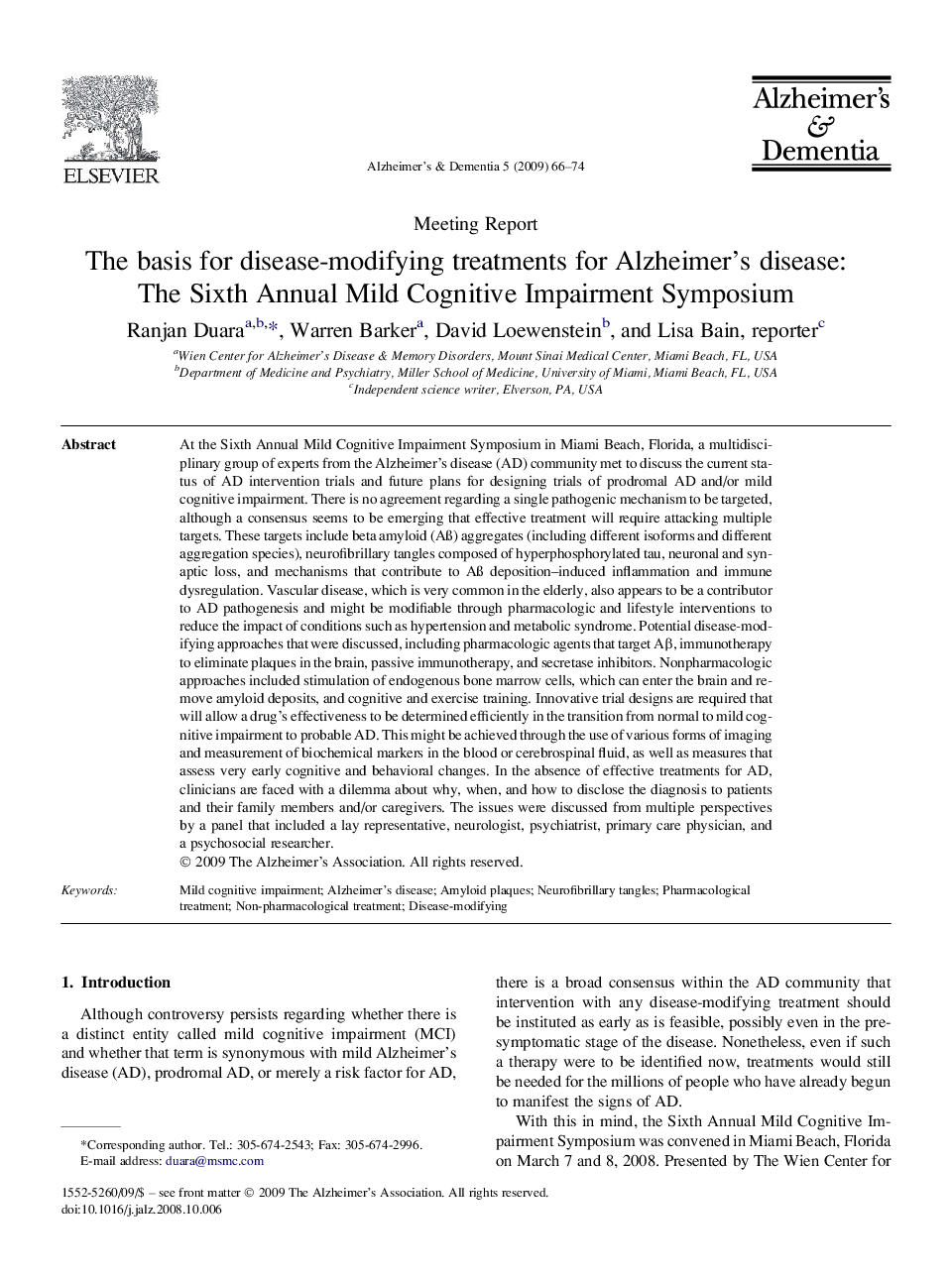| کد مقاله | کد نشریه | سال انتشار | مقاله انگلیسی | نسخه تمام متن |
|---|---|---|---|---|
| 5625354 | 1406278 | 2009 | 9 صفحه PDF | دانلود رایگان |

At the Sixth Annual Mild Cognitive Impairment Symposium in Miami Beach, Florida, a multidisciplinary group of experts from the Alzheimer's disease (AD) community met to discuss the current status of AD intervention trials and future plans for designing trials of prodromal AD and/or mild cognitive impairment. There is no agreement regarding a single pathogenic mechanism to be targeted, although a consensus seems to be emerging that effective treatment will require attacking multiple targets. These targets include beta amyloid (AÃ) aggregates (including different isoforms and different aggregation species), neurofibrillary tangles composed of hyperphosphorylated tau, neuronal and synaptic loss, and mechanisms that contribute to Aà deposition-induced inflammation and immune dysregulation. Vascular disease, which is very common in the elderly, also appears to be a contributor to AD pathogenesis and might be modifiable through pharmacologic and lifestyle interventions to reduce the impact of conditions such as hypertension and metabolic syndrome. Potential disease-modifying approaches that were discussed, including pharmacologic agents that target Aβ, immunotherapy to eliminate plaques in the brain, passive immunotherapy, and secretase inhibitors. Nonpharmacologic approaches included stimulation of endogenous bone marrow cells, which can enter the brain and remove amyloid deposits, and cognitive and exercise training. Innovative trial designs are required that will allow a drug's effectiveness to be determined efficiently in the transition from normal to mild cognitive impairment to probable AD. This might be achieved through the use of various forms of imaging and measurement of biochemical markers in the blood or cerebrospinal fluid, as well as measures that assess very early cognitive and behavioral changes. In the absence of effective treatments for AD, clinicians are faced with a dilemma about why, when, and how to disclose the diagnosis to patients and their family members and/or caregivers. The issues were discussed from multiple perspectives by a panel that included a lay representative, neurologist, psychiatrist, primary care physician, and a psychosocial researcher.
Journal: Alzheimer's & Dementia - Volume 5, Issue 1, January 2009, Pages 66-74